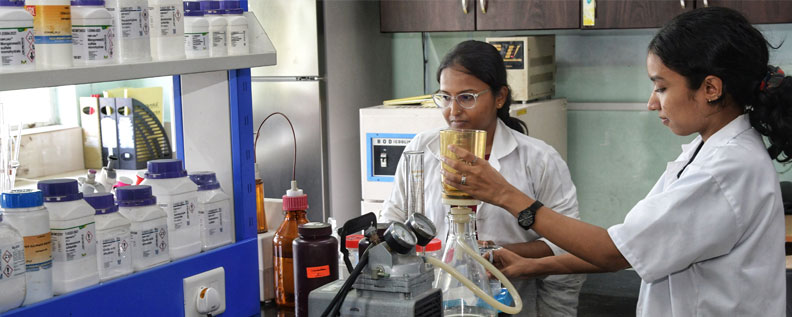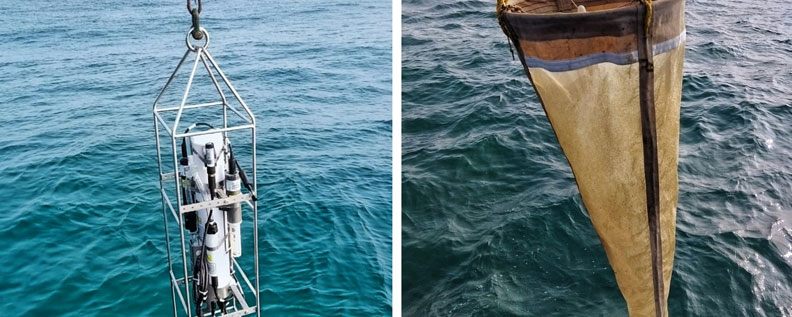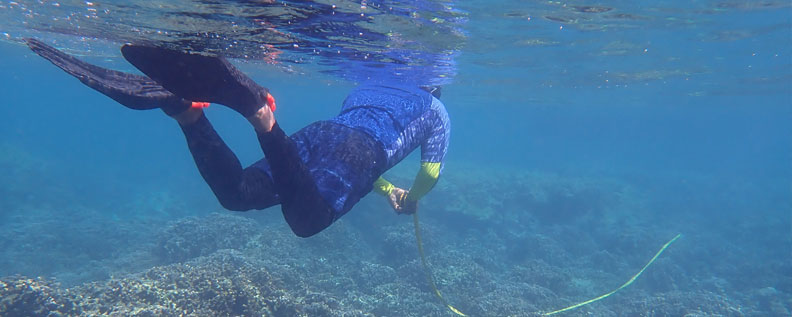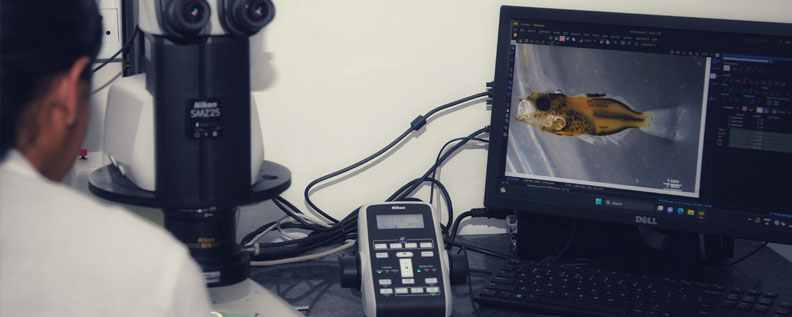- Thrust Areas of Research
-
Major Achievements
- Developed conservation plans for biologically sensitive areas based on the EBSA criteria adopted by the Convention on Biological Diversity (CBD), aiding in the protection and management of coastal and marine ecosystems.
- Conducted coral resilience studies in multiple coral reef areas along the Indian Coast, providing insights into biodiversity and drivers of resilience.
- Assessed the ecosystem health of the Ramsar wetland- the Vembanad Lake using key water quality parameters at micro-level providing valuable insights into its ecological status.
- Assessed and observed a decline in the seagrass coverage in the Lakshadweep reefs using time series data developed using Google Earth Engine
- Identified potential areas of occurrence of the dominant hard corals in the Lakshdweep Archipelago, Andaman reef system and Mergui Archipelago, contributing to conservation and fisheries management planning.
- Marine mammal surveys were undertaken along the Indian coast in order to understand their diversity and abundance in our waters
- Discovered and described two new deep sea fishes – the Kollam snake eel, Xyrias anjaalai and deepsea hagfish Eptatretus wadgensi.
- Discovered and described six new species of Hyattella, contributing to the knowledge of marine species diversity in India.
- New coral species occurrence records were made from Indian waters, such as Endopsammia sp., Rhizangidae corals, expanding the understanding of coral diversity and their distribution in Indian waters.
- Documented and studied the targeted fishery of Jellyfish Crambionella orsini along the Neendakara and Cape Comarin coasts, contributing to the understanding of jellyfish populations.
- Underwater surveys in the islands have added 23 new fish records to Lakshadweep archipelago, enhancing fish faunal records to 435 genera and 868 species. Recorded new records of Plectorhinchus chaetodonoides, Scarus altipinnis, and Gunnellichthys monostigma in Indian fish fauna. Koumensetta, Gunnellichthys, and Chilomycterus genera were recorded for the first time.
- Identified the corallimorpharian coral species Rhodactis bryoides outcompeting hardr corals in Kavaratti, expanding knowledge of invasive species dynamics.
- Monitored algal blooms, including Green Noctiluca scintillans and Red algal blooms of Scrippsiella trochoidea, in the inshore waters of Southwest and east coast of India, aiding in the understanding of bloom dynamics.
- Reported the occurrence and investigated the morphology and features of various jellyfish species, including Marivagia stellata, Cyanea rosea, and Cladonema radiatum, expanding knowledge of jellyfish diversity.
- Studied the influence of marine heat waves on coastal areas along the west and east coasts of India, providing insights into the impacts of warming oceans.
- Explored the relationship between ENSO, ocean-atmospheric parameters, and the abundance of important fish species, contributing to the understanding of their population dynamics.
- Monitored marine plastic litter, including microplastics, along the Indian coast, aiding in the understanding of plastic pollution in marine environments.
- Conducted comprehensive analysis of heavy metals in marine sediment collected from the inshore areas of the west coast and coastal estuarine areas of Mangalore and Cochin (Vembanad Lake). The analysis revealed the levels of Ni, Cd, Hg, and Pb, indicating low risk of pollution except for Cd on the east coast.
- Investigated the impact of derelict fishing gears on vulnerable coastal ecosystems and observed the entanglement of lost gears on branching corals, sea urchins, crabs, and fishes.
- Isolated Photobacterium ganghwense from coral reef ecosystems that has potential for degrading the pesticide Cyfluthrin.
- Established cell culture-based screening methods using 16 marine fish cell lines to detect viruses in diseased and healthy fishes, contributing to fish disease surveillance.
- Recorded significant cytopathic effects of the grouper Epinephelus malabaricus on spleen cell lines, highlighting the presence of pathogens affecting fish health.
Coastal Conservation and Ecosystem Assessment
Fish diversity and faunal records
Climate change and anthropogenic influences
Microbial diversity and biotechnological values
-
Technology or Concepts Developed
- Ecosystem Health Indices (EHIs) for assessment and monitoring of the health status of coastal ecosystems
- Micro-level Environment Management Plan for Aquaculture and Allied Sector for Mulavukad, a Coastal Village, in the Vembanad Lake Ecosystem, Kochi, Kerala, India
- Interactive web map on Spatial plan of proposed responsible livelihood options for Mulavukad Village.
- Developed Beach Litter Atlas for India.
- Online spatial database and Interactive map of the Marine Heatwave Characteristics of the Northern Indian Ocean
- Marine mammals stranding atlas along the Indian coast
- Sixteen immortal marine fish cell lines for marine fish virology and in vitro research
- Documentation of coral reef bacterial diversity with 130 GenBank accessions and reference collections.
-
Ongoing Research Projects
SI.No. Project Code Project Title Principal Investigator Project Period 1 FEM/MPH/29 Marine macrophytes in India-Resources dynamics and Ecosystem services Dr. Bindhu Sulochanan 2017-MAR 2024 2 MBD/CRL/31 Assessment of resilience potential of coral reefs Dr. K. R. Sreenath 2017-MAR 2024 3 MBD/JBD/32 Jelly fish bloom dynamics in coastal and marine ecosystems of India Dr. R. Saravanan APR 2020-MAR 2025 4 FEM/GIS/38 Impacts of extreme weather events on marine fisheries in selected ecosystems of Northern Indian Ocean- A geoinformatics approach Dr. Shelton Padua APR 2020-MAR 2025 5 MBEMD/MMD/39 Marine microbial diversity in relation to ecosystem functioning and environmental changes Dr. K.S.Sobhana 2023-2027 6 MBEMD/MPC/28 Impact of coastal marine pollution on the ecosystem’s health, biodiversity and mitigation measures Dr. P.S. Asha 2023-2027 7 MBEMD/SWD/27 Seed production, genetic improvement and environmental suitability of seaweed farming along the Indian coast Dr. L. Ranjith 2023-2027 -
Scientific Staff
No Name Designation 1 Dr. Grinson George Principal Scientist & Head, MBEMD 2 Dr. K. S. Sobhana Principal Scientist 3 Dr. D. Prema Principal Scientist 4 Dr. Vinod K. Principal Scientist & Head, Mandapam RC 5 Dr. Asha P. S. Principal Scientist & SIC 6 Dr. Rekha J. Nair Principal Scientist 7 Dr. Miriam Paul Sreeram Principal Scientist 8 Dr. Bindu Sulochanan Principal Scientist 9 Dr. R. Saravanan Senior Scientist 10 Dr. Loveson Edward L Senior Scientist 11 Dr. Sreenath K. R. Senior Scientist 12 Dr. Shelton Padua Senior Scientist 13 Dr. L. Ranjith Senior Scientist 14 Dr. Pralaya Ranjan Behera Senior Scientist 15 Dr. S. Ramkumar Scientist 16 Dr. Ratheesh Kumar R. Scientist 17 Smt. Divya Viswambharan Scientist 18 Smt. Ramya Abhijith Scientist 19 Shri. S. Thirumalaiselvan Scientist 20 Dr. Vidhya V. Scientist 21 Dr. Vaisakh G. Scientist
Explore CMFRI
- About Us
- What We Do
- Our Locations
- Knowledge Centres
- Others












